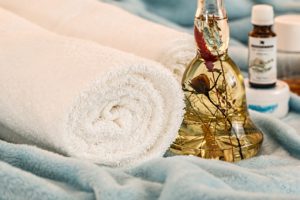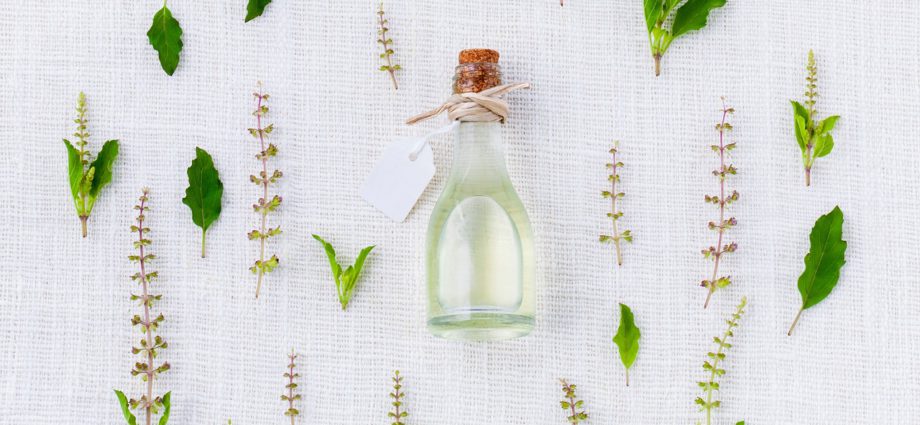As addiction to prescription opioids has reached an alarming high, many suffering from chronic pain and anxiety seek relief through safe, natural home remedies such as essential oils. Aromatherapy or the use of essential oils dates back to the ancient Egyptians who burnt incense sticks made from aromatic woods, herbs and spices. There is now increasing scientific evidence and research showing that essential oils can be used with amazing benefits in a wide range of everyday practices and routines. If you choose to use essential oils as an alternative or safer treatment for certain diseases or ailments, you are exposing yourself to a vast array of health benefits.
You can also improve your overall quality of life by making full use of the therapeutic use of essential oils from plants. Lavender oil, for example, contains elements that make it effective against skin irritation and promote a relaxing sleeping climate. Tea tree oil can help with rosacea and other skin problems.
Essential oils are liquid extracts that contain compounds from certain plants that have health benefits. They are made from concentrated plant extracts and used in aromatherapy and massage therapy. They are often used in aromatherapy, a form of alternative medicine that uses plant extracts to support well-being and health.
Essential oils can be used to relieve stress, boost mood, relieve pain, headaches and migraines, better sleep, suppress nausea and enhance natural beauty. Essential oils are also applied to the skin to treat pain in certain parts of the body, relieve pain in some areas of the body, relieve back pain, relieve sore muscles, relieve sinus pain and some are used as antiseptic or anti-inflammatory properties, for example, for acne and fungal infections. Each oil consists of the corresponding plant fragrance or essence, and each oil has its own unique properties and health benefits.
With essential oils, boost your energy levels, relieve headaches and migraines, calm the nerves, maintain focus, treat a variety of skin conditions, find relief for muscle and joint pains, relieve stress and improve the appearance and feel of your hair and skin. Aromatherapy oils not only provide a pleasant smell, but also disinfection of the respiratory tract, decongestion and psychological benefits. The oils are absorbed into the epidermis (the top layer of the skin), enter the soft tissues and blood circulation, carry the treatment to another area and are metabolized in the liver.
Remember that just because a compound is natural does not mean it is safe, and incorrect use of essential oils can lead to toxicity. In aromatherapy, volatile compounds from the strong properties and fragrance of plants that give them their therapeutic properties are inhaled with drops of oil on a cloth, jewellery or other objects or dispersed into the air through an aromatherapy diffuser. Once the aromatic chemicals are extracted, they are combined with carrier oils to form a ready-to-use product.
Sensitivity to certain odours can lead to undesirable side effects such as headaches, dizziness and nausea when using essential oils. Aromatherapy, a form of alternative medicine in which aromatic compounds are credited with healing effects, can be helpful for relaxation, but there is insufficient evidence that essential oils can treat all diseases. If you use an oil incorrectly, there may be unwanted side effects.

For example, researchers in a 2008 study published in Psych neuroendocrinology found that inhaling the aroma of lemon essential oil improved mood more effectively than aromatherapy with lavender essential oil. However, there is evidence that certain essential oils may be beneficial in relieving pain and anxiety during labour. A study shows that inhalation with lavender aromatherapy helped relieve pain. Some studies suggest that some compounds in essential oils may offer health benefits, but more research is needed.
In one study, treated with lemongrass essential oil, anxiety and tension were reduced and they recovered faster from stress-related situations than those who did not inhale the fragrance. In 2015, a clinical study investigating the effectiveness of an SOS Stress Roll with 12 essential oils found that a great majority of participants reduced stress after taking the role three times a month. A small pilot study found that peppermint oil’s pain-relieving properties in capsules were helpful for people who had difficulty swallowing meals or had non-cardiac chest pain.
Essential oils are often the selling point for beauty and cleansing products but research has shown that inhaling them can be good medicine, says Brent Bauer, Director of the program of complementary and integrative medicine at Mayo Clinic. Scientists have found that a pinch of lavender oil on a towel or on an elderly adult living with a dementia pillow can prolong their sleep time and help them sleep more calmly in the morning.




